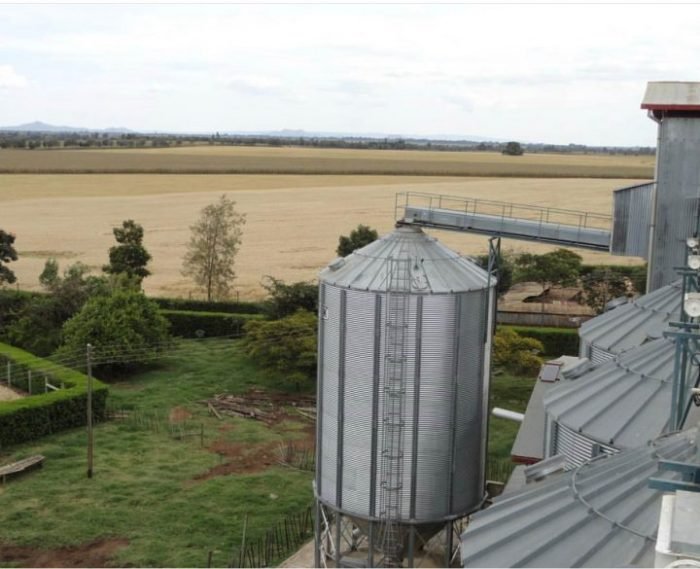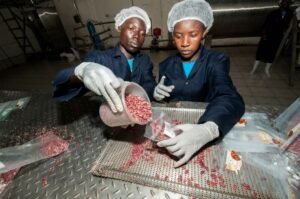By Verenardo Meeme,Rootooba, 7 August 2020
Kenyan smallholder farmers faced with inefficiencies in the supply chain due to poor post-harvest handling leading to low farm gate prices and exploitation by market intermediaries are now embracing Warehouse Receipt System (WRS), experts say.
According to the experts, these inadequacies have contributed to the country losing one-third of its farmers’ produce, stifling growers’ profitability.
But the Kenyan government through the Ministry of Agriculture, Livestock, Fisheries and Cooperatives has inaugurated a Warehouse Receipt System Council with the help of its development partners to help strengthen market price volatility.
According to CS Peter Munya, Cabinet Secretary, Agriculture, Kenyan Parliament passed the Warehouse Receipts Systems Act 2019 in June last year, providing a legal as well as a regulatory framework for development and regulation of a Warehouse Receipt System and establishment of the Warehouse Receipt Council.
Warehouse Receipt System (WRS) is a process through which owners of commodities, who may be producers or dealers, deposit their commodities in certified warehouses and are issued with a document of title called a Warehouse Receipt as proof of ownership.
According to the Alliance for a Green Revolution in Africa (AGRA), about 13,000 smallholder farmers trained on post-harvest management have transacted about Ksh 100 million worth of grain on WRS, where 19,000 metric tons of maize have been sold.
“WRS portends increased income for smallholder farmers. For instance, Mwihoko Self Help farmer group in Nakuru County increased income by 11 percent (the equivalent of Ksh 24,975) by storing ten metric tons of maize for 6 months.” Said John Macharia, the Alliance for a Green Revolution in Africa (AGRA) Kenya, Country Manager.
Munya added that among the key benefits of using the WRS is flexibility in the sale process. Observing that through the system, farmers are not forced to sell in distress at harvest when prices are low, hence boosting lending, promoting aggregation of produce by smallholder farmers, and improving price discovery.
“WRC is critical towards boosting structured trade and smallholder access to credit in the long run, noted Sarah Ochieng, International Finance Corporation (IFC) Programme Manager, Kenya Competitive Enhancement Programme, “Therefore, a fully functioning receipt warehouse linked to a proper commodity trading system, will enhance clarity for players in the agricultural value chain to trade in a structured market.”
Kenya becomes the fourth country in Africa after Ethiopia, Rwanda and South Africa to have a fully functioning commodity exchange.
The WRS is funded by the government of Kenya, Bill and Melinda Gates Foundation, Rockefeller Foundation, the Department for International Development (DFID), The United States Agency for International Development (USAID), among others.







